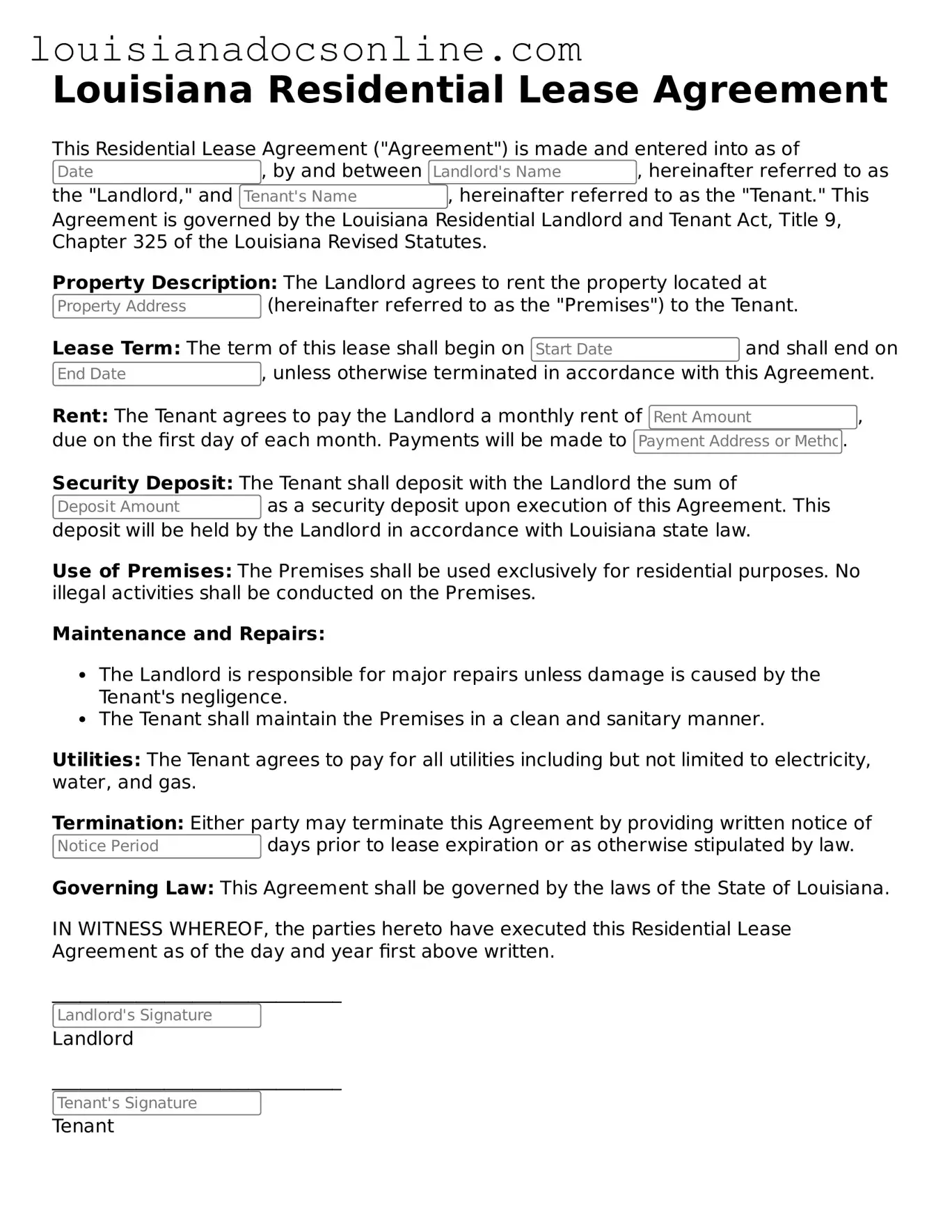Printable Residential Lease Agreement Form for Louisiana
The Louisiana Residential Lease Agreement is a legal document that outlines the terms and conditions between a landlord and tenant for renting residential property in Louisiana. This form serves to protect the rights of both parties while ensuring a clear understanding of their obligations. Understanding this agreement is essential for anyone involved in a rental arrangement in the state.
Get This Form Now

Printable Residential Lease Agreement Form for Louisiana
Get This Form Now
Don’t forget to finish your form
Finish Residential Lease Agreement online — fast edits, instant download.
Get This Form Now
or
↓ Residential Lease Agreement PDF
